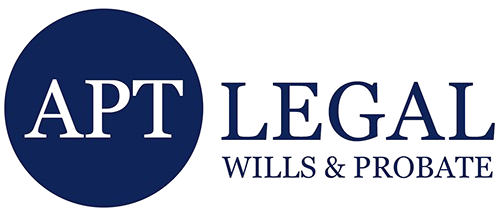At APT Legal, we strive to keep our clients informed about developments that may impact estate planning. Following the recent Budget announcement, we’ve gathered information from various sources to provide an overview of potential changes. Please note that this article does not constitute tax advice, and APT Legal is not a tax advisory firm. We recommend consulting a qualified tax professional for personalised guidance.
Inheritance Tax (IHT) Thresholds Frozen Until 2030
The government has extended the freeze on Inheritance Tax thresholds for an additional two years, now lasting until 2030. This means:
– The standard IHT-free threshold remains at £325,000.
– If your estate includes a residence passed to direct descendants, the threshold increases to £500,000.
What This Could Mean for You:
With property values potentially rising, more estates may become liable for IHT due to the unchanged thresholds. It’s important to reassess your estate’s value and consider strategies to manage potential IHT exposure.
Inherited Pensions to Be Subject to IHT from April 2027
Starting April 2027, inherited pensions may be included in the IHT calculation. Previously exempt, these pensions could now contribute to the taxable value of an estate. This change addresses concerns that some individuals use pensions as an IHT avoidance tool, as noted by the Institute for Fiscal Studies.
What This Could Mean for You:
Beneficiaries of pension funds might face increased IHT liabilities. Reviewing pension arrangements with a financial advisor can help you understand and possibly mitigate the impact.
Changes to Business and Agricultural Property Reliefs
From April 2026, reforms to Agricultural Property Relief and Business Property Relief are expected:
– The first £1 million of combined business and agricultural assets may continue to attract no IHT.
– For assets over £1 million, IHT might apply with a 50% relief, effectively setting the tax rate at 20%.
What This Could Mean for You:
If you own business or agricultural assets, these changes could affect succession planning. It’s advisable to consult with professionals to explore your options.
Reduced IHT Relief on AIM Shares and Similar Investments
Investments in the Alternative Investment Market (AIM) and similar markets might now receive a 50% IHT relief, setting the effective tax rate at 20% for these assets. Previously, certain AIM shares qualified for 100% IHT relief after two years.
What This Could Mean for You:
If your estate includes significant investments in AIM shares as part of your IHT planning, this change could alter your strategy. Financial advisors can provide guidance tailored to your situation.
Abolition of Non-Domiciled (Non-Dom) Status
Effective from April 2025, the government plans to abolish the non-dom status. Wealthy foreign nationals residing in the UK will no longer benefit from the tax advantages previously offered under this regime. A new, “internationally competitive” residence-based scheme is set to replace the outdated domicile concept.
What This Could Mean for You:
Non-dom residents may find their worldwide income and gains subject to UK taxation. Understanding these changes is crucial, and seeking advice from tax professionals is recommended.
Potential Revisions to Gift Exemptions and Reliefs
While specific details are pending, discussions include revisiting existing rules surrounding gifts given during a person’s lifetime, such as the seven-year rule for potentially exempt transfers (PETs). There may also be modifications to reliefs for businesses and agricultural land.
What This Could Mean for You:
Changes to gift exemptions could impact estate planning strategies, especially for those considering significant lifetime gifts. Staying informed and consulting with professionals is key.
Financial Implications of the Changes
These reforms are projected to raise significant revenue. The Office for Budget Responsibility forecasts that the measures could raise over £12.7 billion in the next five years. The changes to inheritance tax alone might raise billions, as the government addresses the public finance deficit.
Final Thoughts
The recent Budget introduces several changes that could affect estate planning. While APT Legal is not a tax advisory firm, we recognise the importance of staying informed. We encourage you to:
– Review your estate plans: Ensure they align with potential new regulations.
– Consult qualified professionals at APT Legal for Wills and Estate Planning and seek advice from tax advisors and financial planners to navigate these changes effectively.
We’re Here to Support You
At APT Legal, our focus is on providing estate planning services that meet your needs. We remain committed to supporting our clients across Nottinghamshire, Lincolnshire, and throughout England and Wales.
Contact us today to discuss how we can assist you with your estate planning needs.
Disclaimer: This article is for informational purposes only and does not constitute tax or legal advice. APT Legal is not a tax advisory firm. The information provided is a collection of insights from various sources following the recent Budget announcement. For personalised advice, please consult a qualified tax professional.





